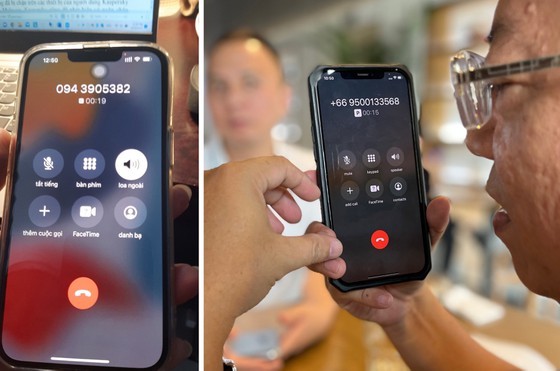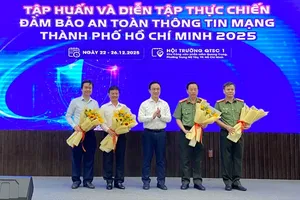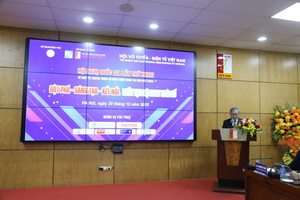
The most annoying telecoms scams in HCMC at present come from phone calls, where strangers pretend to be an official from the court or the police’s e-portal office to announce that phone subscribers are related to investigated cases and should send a certain sum of money to callers’ bank account to serve investigation processes.
Thanh Nhan from Binh Tan District shared that her mother has lately repeatedly borrowed money from her even though the old woman has plenty of money for her living expense. When being asked, the mother admitted being contacted by people from an investigating unit. They said that Nhan’s brother owes the bank a large amount and should meet serious trouble without debt payment. They then asked the old woman to send VND64 million (US$2,750) within 12 hours. Luckily Nhan could stop her mother from following that order in time.
Another kind of scam is when criminals pretend to be the police force and ask victims to either come to the police station for strict investigation, or share their personal information (citizen ID card number, phone number, bank account) so that the financial police can further investigate the case. With information at hand, the criminals then send a sign-in code so that victims can access a fake website of the Ministry of Public Security and cancel the OTP confirmation process. It is now time for these criminals to freely withdraw money from victims’ bank account.
One more typical scam is when criminals contact victims to announce the arrival of an unexpected gift from a new foreign friend. In this case, criminals normally attach a clip displaying the gift and victims feel attracted. A few days later, they ask the victims to send a certain sum of money for customs clearance procedures. After sending money and waiting for a few days, the victims then discover they are tricked when they receive nothing from the post.
Yet another popular scam is when criminals send an SMS Brandname via the SMS Fake Sender ID service to victims, advertising for a lucrative job opening in e-commerce floors. The victims are asked to deposit a certain money amount first to begin the job. This deposit can never be withdrawn. Most SMS of this kind end with the suffix .iMessage or .outlook.
Aware of such an increase in telecoms scams recently, in April 2022, Google cooperated with the National Cyber Security Center (NCSC) to launch the website DauhieuLuadao.com to update citizens with typical scams and solutions to stop them. There is one quiz for website visitors to check their understanding of popular scams nowadays.
Google and NCSC also introduced Phishing Quiz – a useful tool to check people’s awareness about scams via emails, in hope of protecting Internet users from online scams.
“We believe that such quizzes, website and the cyber trust ecosystem with credibility certificates can prevent citizens from being tricked, making them more confident and relaxed using services on the Internet”, Deputy Director of NCSC Nguyen Xuan Quang stated.
























